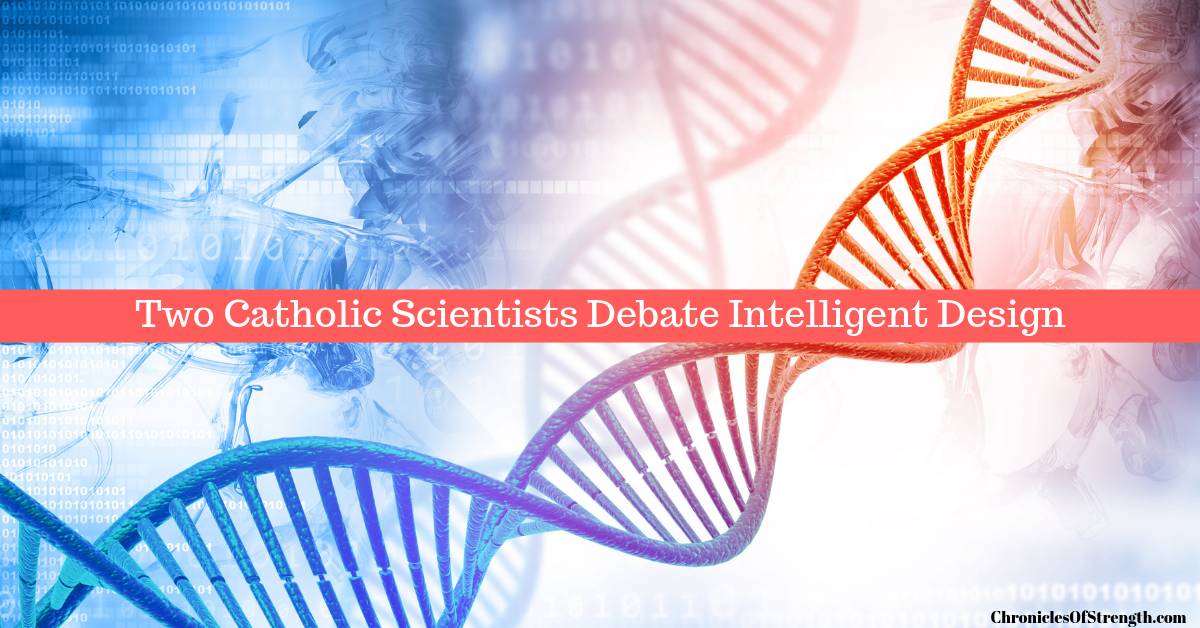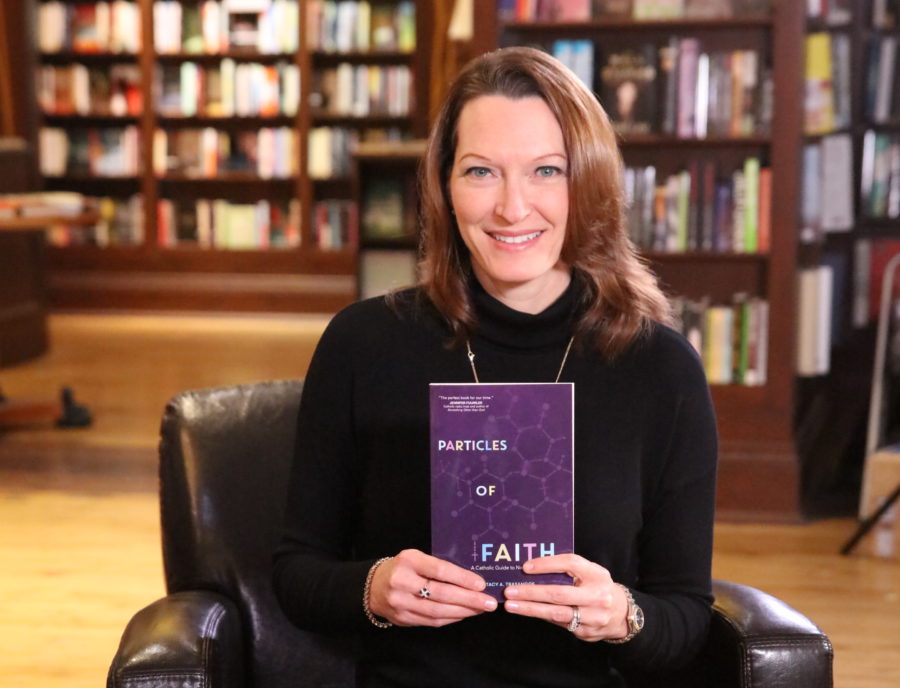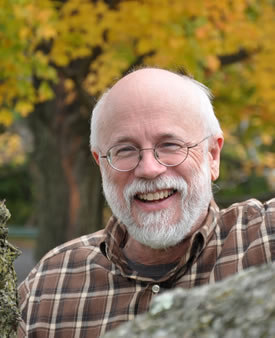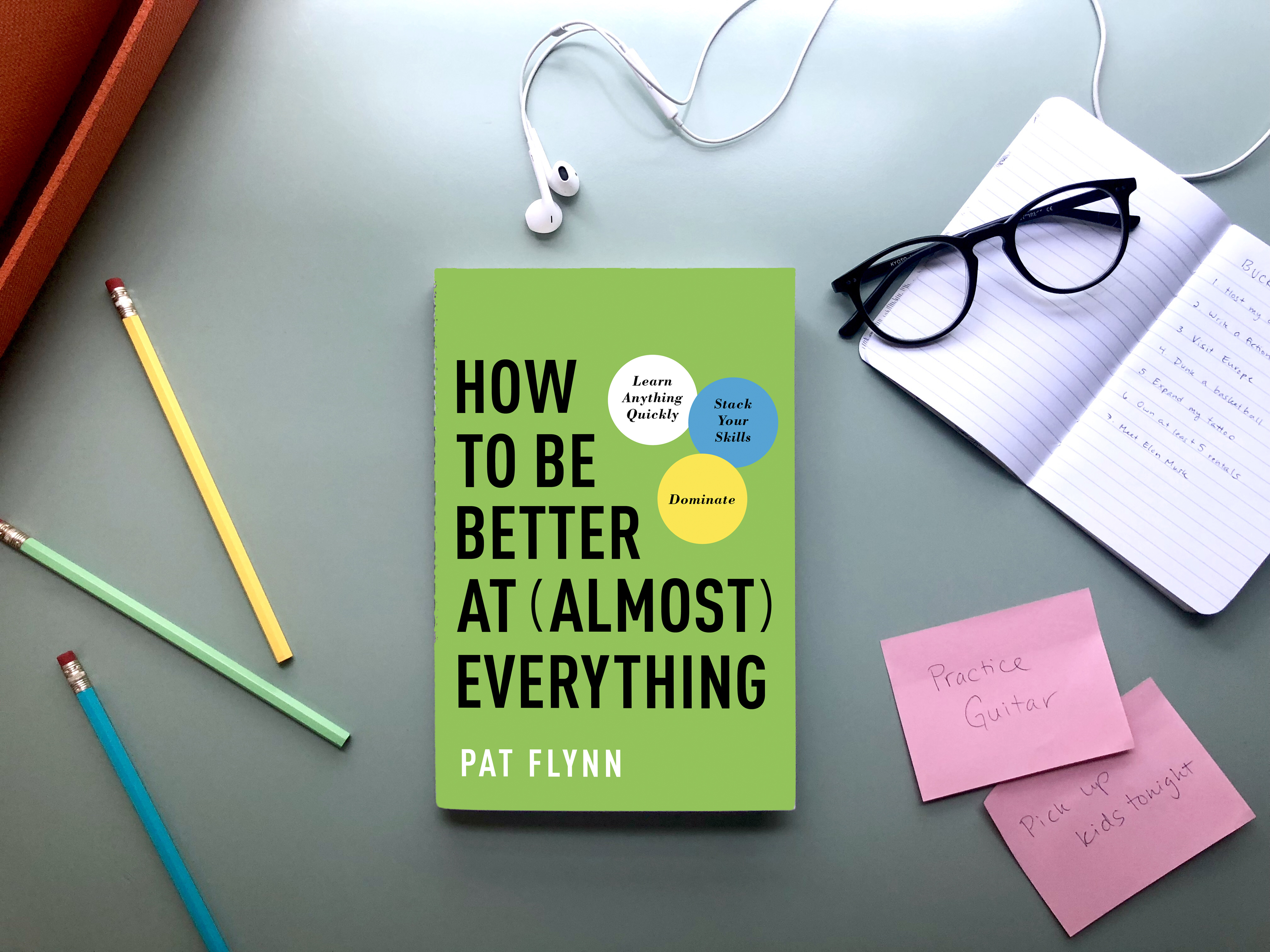
Pat is joined by two Catholic Scientists — Dr. Michael Behe and Dr. Stacy Trascancos — to discuss and debate the theory of intelligent design.
In this conversation:
- What does Intelligent Design (ID) actually say about the theory of evolution? Is ID an argument from ignorance, or an inference to the best explanation?
- At what level is design obvious in nature? Is ID too narrow, or telling of something much greater?
- Can you settle the matter of design (or no design) apart from evolution?
- How do we best explain the complex structures and genetic codes we’ve discovered in life? Can Neo-Darwinian processes account for this?
- What does “random” or “unguided” mean with respect to natural selection?
- Can “brute forces and matter” account for the structures and complexity we see in nature?
Two Catholic Scientists Debate Intelligent Design
OR, ==> CLICK HERE TO DOWNLOAD THE EPISODE.
…
About Dr. Trasancos

Dr. Stacy Trasancos is a convert to Catholicism and a nationally-recognized author, speaker, and educator on the topic of theology and science. She has a PhD in chemistry and an MA in dogmatic theology. She is a teaching fellow for Bishop Robert Barron’s new Word on Fire Institute and regularly appears on Catholic Answers Live to answer questions about faith and science.
She is the author of three books: Particles of Faith, Science Was Born of Christianity, and 20 Answers: Bioethics. Her work was featured in Forbes, and she has written numerous articles for publications such as National Catholic Register, St. Austin’s Review, and Catholic World Report. She has appeared on Catholic radio shows, including SiriusXM’s The Jennifer Fulwiler Show and Busted Halo with Fr. Dave Dwyer. Dr. Trasancos teaches online theology courses for Seton Hall University’s Catholic Studies program. She and her family moved from the Adirondacks of upstate New York to East Texas last year–a coming home to her birthplace–and now she is the Executive Director for the St. Philip Institute of Catechesis and Evangelization founded by Bishop Joseph Strickland in the Diocese of Tyler, Texas.
She is a mother of seven and wife to her dear husband, Jose. They enjoy their life together in Hideaway, Texas.
…
About Dr. Michael Behe

To grab Dr. Behe’s new book Darwin Devolves, and to see his rebuttals to critics, visit: https://darwindevolves.com/
…
Michael J. Behe is Professor of Biological Sciences at Lehigh University in Pennsylvania and a Senior Fellow at Discovery Institute’s Center for Science and Culture. He received his Ph.D. in Biochemistry from the University of Pennsylvania in 1978. Behe’s current research involves delineation of design and natural selection in protein structures.
In his career he has authored over 40 technical papers and two books, Darwin’s Black Box: The Biochemical Challenge to Evolution and The Edge of Evolution: The Search for the Limits of Darwinism, which argue that living system at the molecular level are best explained as being the result of deliberate intelligent design. The books have been reviewed by the New York Times, Nature, Philosophy of Science, Christianity Today, and many other periodicals. Darwin’s Black Box has sold over 250,000 copies and was internationally reviewed in over one hundred publications. Both National Review and World magazine named it as one of the 100 most important books of the 20th century.
Behe has presented and debated his work at major universities throughout North America and England.
…
Related Episodes
EP 235: God and Science, Near Death Experiences, and How to Suffer Well
Sunday School: The Believing Scientist – A Particle Physicist Talks About God
Michael Behe on Irreducible Complexity and The New Science of DNA
…
How to Be Better at (Almost) Everything

Be sure to snag a copy (or two!) of Pat’s book How to Be Better at (Almost) Everything while it’s still on sale over at Amazon here: ==> https://amzn.to/2MHdHSh
Want some cool bonuses to go with, including an intense 5-day fitness plan, and a collection of 1-page skill building cheatsheets? Then simply email us at PatFlynn(at)Chronicles(of)Strength(dot)com with your receipt, and we’ll send them right along.
The Pat Flynn Show
If you enjoyed this episode, it would mean the world to me if you could subscribe to, and leave a review for, The Pat Flynn show on iTunes HERE or Stitcher HERE.
Reading your reviews and hearing your feedback is what keeps me fired up to make The Pat Flynn Show happen. Thank you!
Intelligent design is something that I think creates considerable controversy. As Dr. Trasancos points out, creationists don’t go big with their arguments. Personally, I see too many creationists who don’t have a solid foundation on what they’re trying to posit to people, making themselves look foolish and setting the movement back (I can’t help but wonder how many of these are people who claim to be creationists but who aren’t and are instead, just sabotaging things).
Hi Morgan,
Just to be clear, ID isn’t creationism, at least not in the sense that term is typically thrown around. ID holds to an old earth and embraces evolution. What proponents of ID like Dr. Behe challenge is the specific mechanism of unguided selection and mutation to account for the complexity and diversity of life. It’s a common misunderstanding to lump the two of these together, but they are technically distinct. Thanks for the comment!
– Pat
Thanks for the clarification!
Thank you, Pat for choosing to discuss a platform that not many choose to discuss. I always get fascinated listening to people in the more scientific field speaking on topics like these. I studied all in nonsectarian schools and was very much surrounded by science as that was heavily focused in our school. The relationship between faith and science was blurry and it was more of a separate thing. I couldn’t imagine hearing these perspectives back then but I am in awe of the thoughts and insights shared by Dr. Trasancos and Dr. Behe. Also Pat, great work on stirring the discussion. Thank you for introducing this! I am looking forward to read their books as well, actually looking into purchasing Science was Born out of Christianity by Doc T.
Glad to hear you found the conversation stimulating! Thanks for the remarks, Cheska.
This is complex and science isn’t my strong suit so please understand if I misinterpret things. I think I have an understanding of intelligent design, but I can’t make the jump from intelligent design to a God who intervenes in the lives of people (or animals). I’d say my beliefs are more along that of Deists.
That’s correct, Vince. Admitting to ID would not give you the God of any particular religion. You need other arguments for that.
That said, I would contend that design in nature — whether with respect to biology or cosmology — is strong evidential weight in favor of theism, and should encourage people to begin peeping through other evidence to decide whether the God who designed the universe so intricately that intelligent life could emerge, might, in fact, have some specific plan for our lives.
Thanks Mr. Flynn. It sounds like a person who is building up a case based on circumstantial evidence rather than direct evidence. Direct evidence would be God speaking to someone while circumstantial evidence would be things such as Intelligent Design which do not prove things in and of themselves. Contrary to conventional wisdom, you can win a case on circumstantial evidence. I remember a professor telling me it’s like building a wall with many bricks (the pieces of circumstantial evidence). I’m sure you know this from arguments you’ve likely made but I wanted to share it with people.
I think that’s a good way of putting, Vince. Or, if not just circumstantial, at least a cumulative case, we might say. That said, circumstantial and background evidence can help a lot when considering the historicity and explanatory power of certain claims (much like how investigators consider background and circumstantial evidence — and not just direct evidence — at a crime scene), religious or otherwise. Richard Swinburne, former professor of philosophy at Oxford, has some good stuff on this with respect to probability theory when considering, say, the evidence for the Resurrection in light of this or that piece of background information, rather than just looking at the historical data alone. So, I’m glad you brought that point up. It’s a good one.
In case you’re interested: https://epdf.pub/the-resurrection-of-god-incarnate821e2d77dea2a89001a866247ca0963d42659.html
Thanks for the link. Good point about the cumulative evidence. It brings up the classic argument of something being possible, but not probable. I have friends who are Christians who have experienced many things they claim are miraculous (such as terminal patients being cured after intense prayer even when doctors say they’re a hopeless case). In their experience, they’ve repeatedly seen things that they view as divine intervention and feel the weight of the evidence supports their view in a God who intervenes in mortal affairs. It’s an intriguing subject and thanks for replying again.
I appreciate the sincere and thoughtful dialogue. Good to have you here, Vince.
Great episode and discussion! My take on the main point of contention between Dr. Trasancos and Dr. Behe seemed to be the fact that Dr. Transancos doesn’t like the idea of using any kind of scientific evidence to justify belief in God. That being the case, I suspect she would take issue with a lot of Fr. Spitzer’s arguments and work. I respect her approach of trying to work within science already assuming everything is created by God and hence “designed” and not “random”, or as Dr. Behe tried to clarify that most in the scientific community equate “random” to unplanned or unintended. But really then she’s just arguing for the intelligibility of the physical universe. Perhaps rather than looking at the work of Dr. Behe or Fr. Spitzer, et al. as potentially painting themselves into a corner with God of the gaps type interpretations implied by “irreducible complexity”, we could look at their work as necessary pushback against the hard atheist/materialist propaganda offered by the likes of Dawkins when they claim that “science” positively disproves God because the scientific evidence somehow proves that blind forces (coming from nowhere?) are sufficient to explain everything. I think this pushback is necessary if we have any hope of reaching at least some people who don’t accept the starting premise that God created the universe. And even just for science’s sake, it seems like an appropriate check to keep the work of science grounded in reality so that scientists don’t overstep their bounds, and continue to do good science.
Hi Paul,
Thanks for the thoughtful commentary. I’m not sure what Dr. Trasancos would make of Fr. Spitzer’s work. I’ll have to let her speak for herself on that one, and perhaps we can get the two of them on sometime.
But I’m with you on what you said after that: I do think the work of many Christian philosophers and scientists is a necessary and important push back against the clearly ridiculous claims constantly being spouted off by people like Dawkins. Truth is, philosophically inept as Prof Dawkins may be, he’s rhetorically effective, has sold millions of books, and influenced countless numbers of people into believing what can only be appropriately described as pseudo-scientific, pseudo-philosophic twaddle. So, I personally have no problem with people presenting counter arguments and evidence against these New Atheist types; in fact, I would say it is sorely needed. Now, some might argue this is not an effective approach, but that is only a secondary concern of mine. What’s infinitely more interesting to me is the question of — but is it true?
Hey Pat. Thanks to Dr. Trasancos and Dr. Behe for taking the time to appear on your podcast. I think Intelligent Design and evolution are two fantastic ways to broach the subject of God and more importantly, Christianity. This was a good talk and a good follow-up for me personally because I’m currently reading Stephen Barr’s “Modern Physics and Ancient Faith” and Robert J. Spitzer’s “New Proofs for the Existence of God: Contributions of Contemporary Physics and Philosophy.” While this wasn’t a debate per se, I think Dr. Trasancos made her points much more clearly than Dr. Behe. I don’t think it had to do with Dr. Trasancos’s arguments as much as her speaking ability (although both sets of arguments were strong). Another excellent discussion and nice job moderating things too, Pat.